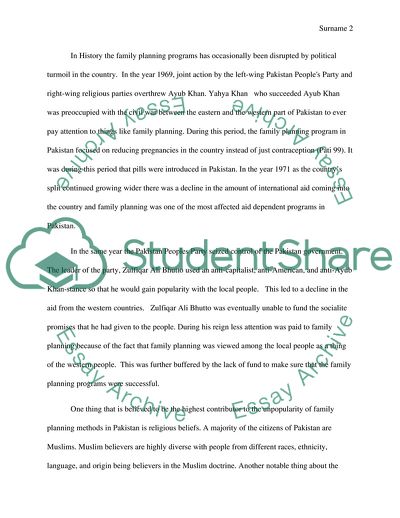Cite this document
(Family Planning in Pakistan Essay Example | Topics and Well Written Essays - 1500 words, n.d.)
Family Planning in Pakistan Essay Example | Topics and Well Written Essays - 1500 words. https://studentshare.org/history/1830824-populationdevelopment-problem-in-asiaasian-country
Family Planning in Pakistan Essay Example | Topics and Well Written Essays - 1500 words. https://studentshare.org/history/1830824-populationdevelopment-problem-in-asiaasian-country
(Family Planning in Pakistan Essay Example | Topics and Well Written Essays - 1500 Words)
Family Planning in Pakistan Essay Example | Topics and Well Written Essays - 1500 Words. https://studentshare.org/history/1830824-populationdevelopment-problem-in-asiaasian-country.
Family Planning in Pakistan Essay Example | Topics and Well Written Essays - 1500 Words. https://studentshare.org/history/1830824-populationdevelopment-problem-in-asiaasian-country.
“Family Planning in Pakistan Essay Example | Topics and Well Written Essays - 1500 Words”. https://studentshare.org/history/1830824-populationdevelopment-problem-in-asiaasian-country.


